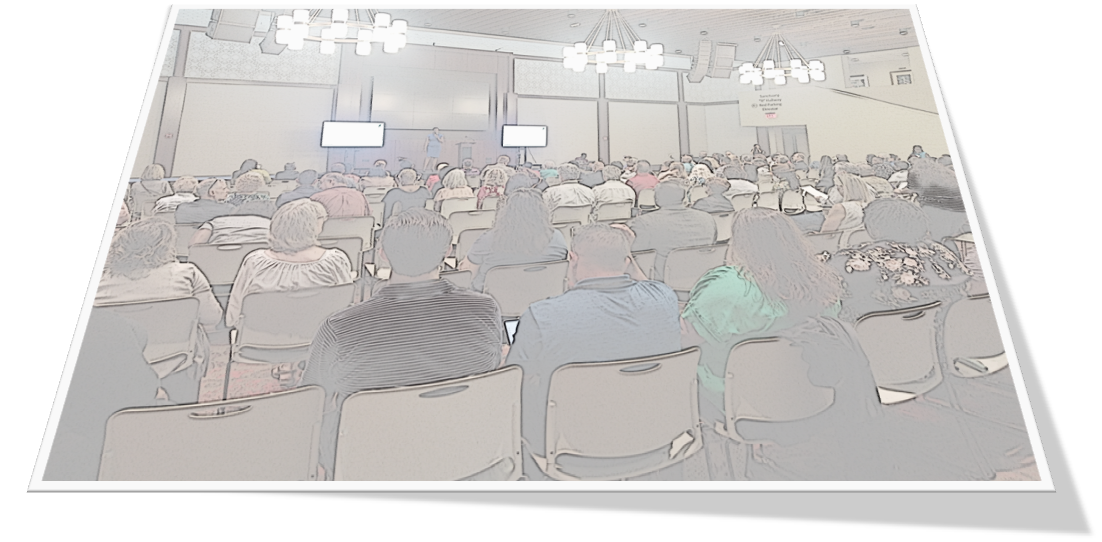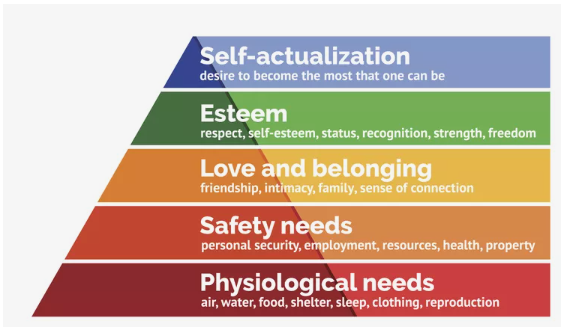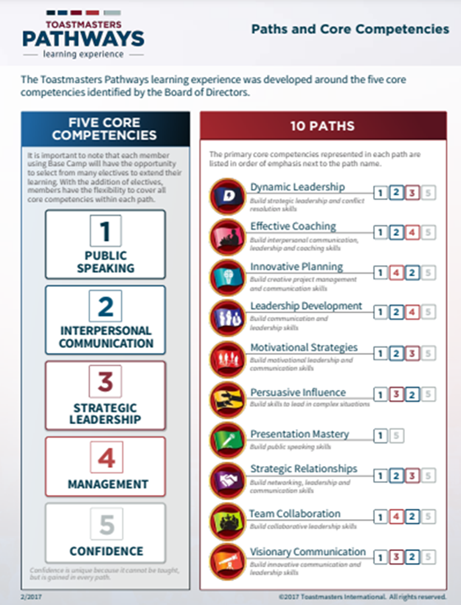|
A little more than two years ago the world went quiet. Remember? Toastmasters, just like all the big and small organizations were scrambling to adapt to the situation. Zoom became a hit! Zoom was an NFT. A non-fungible token! Adaptations usually come at a sluggish pace. Who wants change? We like our status quo, right! But this time it was different. We embraced virtual technologies at a lighting speed. Ever wonder why? Even though humans like to think as individuals, our innate desire is to act in collectives. What if I tell you, this is a 12-thousand-year-old habit! I'm going to explain it soon. When we were forced to isolate, that disconnection from society (brought on by the pandemic), scared us. Virtual technologies through us a lifeline. We were back in touch with our families, loved ones, and of course, Toastmasters. We told ourselves, the benefits of virtual technology were an absolute blessing. But that was then. Soon virtual fatigue began to set in. Many of us began to zoom out. Toastmasters’ participation took a hit. Membership started to drop and the active members began to miss more and more meetings. Let me change gears for a minute. A survey done by Cigna Insurance (Jan 2020 & before pandemic), showed more than 3 in five Americans are lonely. That’s 60% of the US population. Feelings of being left out, poorly understood, and lack of companionship were cited as major reasons. An article (“How Social Isolation Is Killing Us”, 22 December 2016) posted on New York Times, read, “Since the 1980s, the percentage of American adults who say they're lonely has doubled from 20 percent to 40 percent. About one-third of Americans older than 65 now live alone, and half of those over 85 do.” How could this be? At the present, that number should be Zero with all the social mediums that are available to us. “We boast we are connected. We have a thousand friends, or thousand followers or thousand connections”. Yet, the number of loneliness claims keeps climbing. Let me share the 12,000-year-old story. 12,000 years ago, humans were at the end of the Stone Age. In the early days of human evolution, we were hunters and gathers. We had to chase after our food. We were scattered all over the place. We were nomads. Then we discovered farming. We no longer had to chase after our food and we decided to settle down. We began to connect with the others. Then we sought out relationships with others. We understood the value of bonding with others. Especially with like-minded people. We established communities. The Communities became societies. Society became an inseparable part of our DNA. All of this blossomed in close proximity. It was such a pivotal period in the human timeline, it is regarded as a revolution! The Neolithic Revolution or the Agricultural Revolution. Now you understand why most of us feel lonely in a well-connected world. Verbal or visual contact through a secondary medium is no substitute for a one-on-one encounter occupying the same ground. As a matter of fact, that secondary medium is a barrier. It is not a blessing in disguise but damage in disguise. If you were to bring psychology into this issue of feeling lonely, take a look at Maslow's hierarchy of needs. Once we fulfill the basic needs such as food water, and safety, we need belongingness and love. Think about that 12,000-year-old habit! Humans are communal beings. We are designed to live in relationships. We need to be heard. We need to be understood. And all that must happen in close proximity. It is ingrained in our DNA. Let’s come back to Toastmasters. Toastmasters is meant to be a live learning experience. Toastmasters are meant to be among a live-in-person audience. We are meant to give speeches to a live group, standing Infront of them. When we went online, we separated or distanced ourselves from our social group. We voluntarily isolated ourselves. We spoke to a computer screen. Our live audience was a group of tiny windows on the computer screen. We didn’t hear their laughter; we didn’t see their smiles; we didn’t see their reactions and we didn’t hear the applause. When the meeting ends, we unmute, say goodbye, and shut the program down. Just like that. We disappear into oblivion. There are no handshakes, hugs, fist bumps, or small chats. The personal connection has been completely weakened. By being online we have broken the most essential premise of Toastmasters. Going online was a temporary solution. It was a means to an end. It was an act of desperation. Therefore, it was never a sustainable solution for Toastmasters. The live learning experience is about making an emotional connection. Emotional connections are an integral part of building a successful Toastmasters social fabric. The close contacts build reliable rapports. There is a strong sense of camaraderie when we are together in person. It is easy to read and relate to facial, body, and verbal clues when we are present. Our five senses are fully awake in the presence of others. That means we get to know each other’s personalities, intentions, and true feelings. We feed off of others' energy. We act with vigor. That attraction brings us excitement and our social relationships become stronger. Let me show you a connection between social relationships and Pathways learning experience. The Toastmasters Pathways learning experience is developed around the five core competencies. Competencies are skills that we are expected to learn through each Path. We will learn at least two but no more than four. The five competencies are: Five is not in the color gray. Five is Grayed Out! The reason it is grayed out is that Confidence is not a skill that can be taught or trained. It is a consequence or an effect. The skill of confidence must be earned through live social interaction. Confidence is a result of social relationships. Let’s be clear on this, you can’t possibly become confident sitting Infront of a computer screen! By constantly being online, the social fabric is torn. When the members realized that they were not getting the value out of the program, some walked away and some decided to sit it out. Fortunately, all is not lost. The silver lining in all the chaos is understanding that online meetings have a significant value and it is only evolving. We need to learn the mechanisms of online tools, and there are etiquettes when presenting or participating in virtual or online meetings. Therefore, it is imperative that we sharpen our online user skills. Online meeting is a convenient medium for quick meetings, meeting deadlines when time and distance are an issue, workshops that are held at a remote location, or for a few who have physical/mobile difficulties. In the short run, it serves a purpose and I’m so happy now that option is available to all of us. Let me remind you again, online meetings are not the premise of Toastmasters. It is only a tool. Just like Podcasting, Blogging, Video Casting…etc. In my humble opinion, there should be a Path for Online Presentation. If I were to introduce the path, I would call it, The Virtual Communicator Path, path number 12! How awesome would that be!! Speed Networking website mentions two studies on effectiveness of face-to-face meetings; A study by Forbes Insight says, 85% of people agreed that in-person meetings and conferences build stronger, more meaningful business relationships. A study by the Harvard Review showed, that 95% of people said face-to-face meetings are a key factor in successfully building and maintaining long-term business relationships. There is no denying the effectiveness of meeting in person. It focuses on human connection. In-person meetings build trust, build confidence and it shows that we value our relationships. How many times have you heard the term/phrase, “Toastmasters family”? I’m beginning to realize Toastmasters don’t have meetings. Toastmasters have assemblies. The Toastmasters’ motto, is ‘Where Leaders Are Made.’ Leaders are made among the crowd, never sitting behind a computer. Toastmasters’ assembly is an NFT…a Non-Fungible Token! Social separation impact negatively for Toastmasters. To all the online Toastmaster diaspora, I tell you, “Toastmasters, come home!” * Why should you consider Toastmaster?
0 Comments
Your comment will be posted after it is approved.
Leave a Reply. |
Categories |
Proudly powered by Weebly



 RSS Feed
RSS Feed